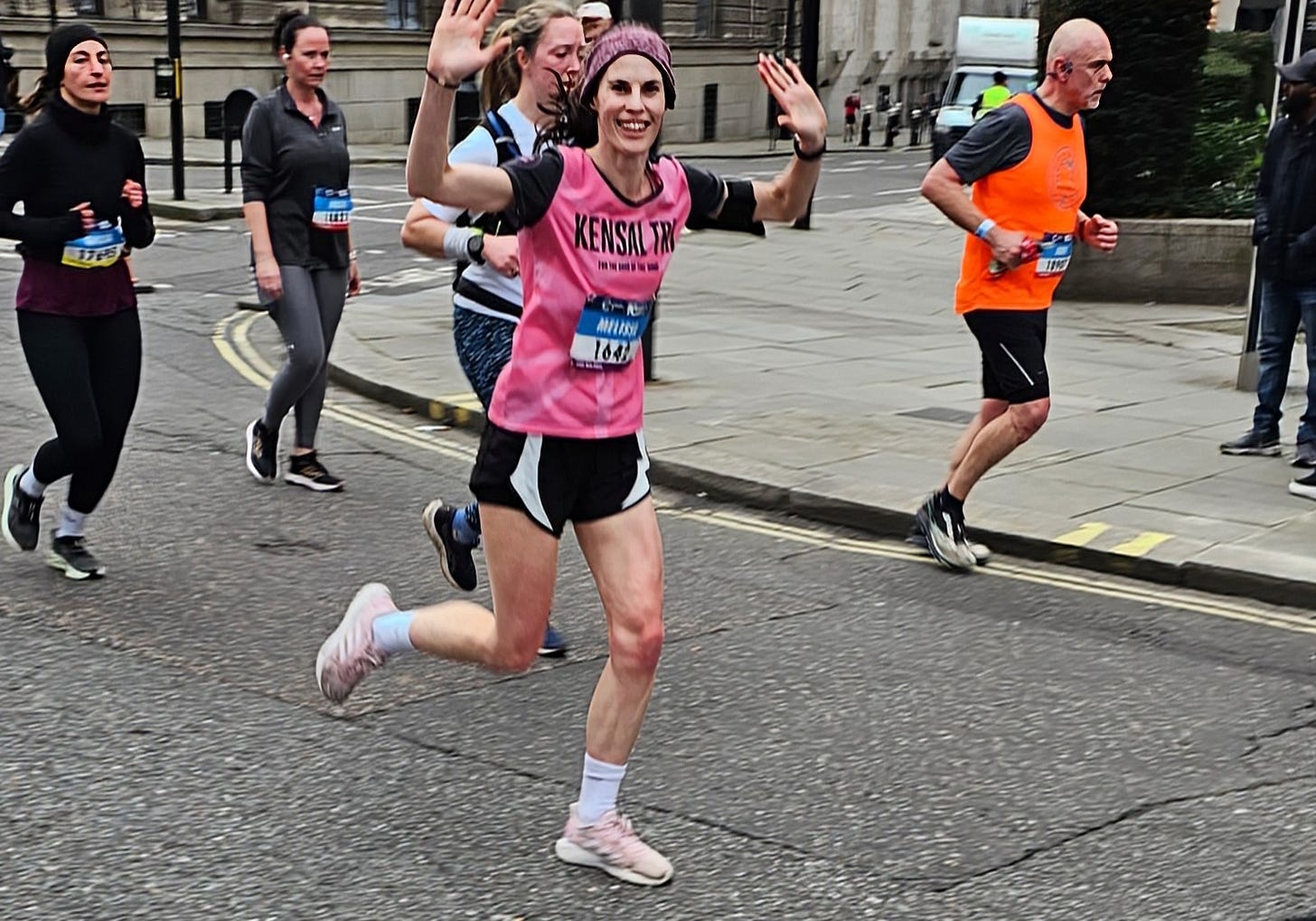I grew up participating in numerous sports, so I am more than a little biased, but several decades of evidence supports just how much sport can benefit our wellbeing.
It’s why I push myself to stay active as much as I can - it always improves my mood. As I often tell others, you may not want to get out and exercise, but it’s unlikely you will regret having done so. Numerous lines of study show that regular exercise improves our wellbeing, cognitive function, longevity and of course, fitness.
I now regularly run 20-25km a week, and cycle to work on office days (a 12km round trip). I also attribute my relatively fast recoveries from last year’s surgeries to the fact that I maintain an active lifestyle.
As a child I tried horse riding, dancing and eventually settled on basketball, doing six hours of weekly training sessions from the age of 12, in addition to school sports and weekend games. Being part of a club meant I had to stay committed too. Our coaches were strict - we were asked to phone before hand if we couldn’t make a session and explain why, or else we’d be letting our team mates down. I would dread making that call so much that I made sure I turned up whenever I could. “If you don’t train, you don’t play,” the saying went.
The benefits of enrichment outside school are vast. Findings show that being part of an extracurricular club for two years is linked to a higher self-esteem, better school results and a greater chance of later graduating from university, as well as holding a leadership position. This is believed to be the case because kids thrive “by doing hard things that interest them”. Hobbies also provide an environment that combines challenge and intrinsic motivation, the psychologist Angela Duckworth found.
Doing structured activities keeps children away from screens and gaming – and we know too much screen time affects sleep and a lack of sleep impacts academic achievement. It’s therefore no surprise that taking part in extracurricular activities is linked to better behaviour.
It’s a given then that I’m trying to model an active lifestyle to my kids - without any pressure of course. That’s why I was delighted when my daughter was recently invited to take part in a “girls active” day trip with several of her classmates. She took part in competitions with professional athletes in a stunning sports stadium, and got a taste of how rewarding it can be to be part of something bigger. A few weeks later her school athletics team came first out of 14 local schools and she came home proudly showing us her medal.
When I read that this initiative was set up because girls are more likely than boys to stop playing sports in their school years, it gave me pause for thought.
As I report on a recent Bold post, girls as young as seven are less active than boys, a difference which continues to widen. Girls are more likely than boys to say they feel self-conscious about their appearance and are more likely to feel judged. Worse, girls are socialised to act in a stereotypically “feminine” way, which often means avoiding athletic activities. If you’ve ever heard the term “throw like a girl” you’ll know exactly what I mean:
Some people believe that girls are athletically inferior to boys, and girls are teased more than boys when taking part in sports. Three-quarters of adolescent girls in one study had heard negative comments about girls in sports from people in their lives, including friends, family, teachers, and coaches.
Regardless, I do have hope for the next generation My daughter tells me she’s one of the fastest in her class - she hasn’t yet internalised the expectation that boys are better at sports, but the gendered aspect was noticed early. “Girls don’t play football,” she once told me when walking past a group of mostly boys training in a club in our local park. Fortunately we’ve managed to override this assumption somewhat by exposing her to girls football on TV, though she was quick to notice that there’s more men’s football shown in the first place. Now that the weather is improving, we plan to regularly join our weekly junior Park Run, where kids run 2km round a local park.
All this to say, I’ll never force my kids to join a sports club or take part in a team if they are reluctant, but by modelling an active lifestyle, I hope they will follow suit.
Breadwinners is out THIS YEAR in August 2025 - The pre order link is NOW LIVE, please consider a pre-order, it makes such a difference to authors.
The Motherhood Complex is available from most book stores. Read it? I would love to know what you think, or even better, leave me an Amazon review (you can do this regardless of where it was bought) - this really helps first time authors like me.
Questions or comments? You can reply to this post or I’m on Instagram, X and Facebook





